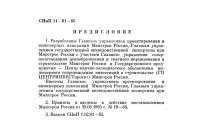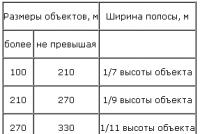Subsidies to state enterprises. What is a subsidy? Who are the subsidies given to? Subsidies to support the balanced budgets of the constituent entities of the Russian Federation
In modern life, we often come across such a concept as subsidies. It is known that this is financial assistance from the state. We will understand in more detail what a subsidy is, how it differs from a subsidy, who is entitled to such payments and how to get them.
The meaning of the term
So what is a donation? This is a cash benefit that is paid from state budget enterprises, organizations, local authorities, individuals in order to reimburse the incurred losses, free of charge and irrevocably. The meaning of the word "subsidy" in translation from the medieval Latin dotatio - "gift", "donation".
Such payments bring significant benefits to the economy and help certain segments of the population, but there is another side to this coin. Since the funds of the state budget are spent for these purposes, this can lead to its deficit. There is not enough money in the treasury, which means that you need to replenish it. A solution to the problem is emission, as a result of which the state currency is depreciated. And then inflation sets in.
Alignment subsidies
The sources of income for municipalities are rather uneven. The level of revenues to local governments depends on the size of the population of the administrative unit, the amount of land and property taxes for individuals and legal entities... These incomes can differ tens, and sometimes hundreds of times.
Let's figure out what an equalization subsidy is. The federal budget can allocate funds (transfers) to regional budgets, and they, in turn, to local ones, in the form of subsidies. The purpose of such payments is to equalize the financial security of municipalities. Subsidies are provided to local governments to cover the difference between expenses and income.
Such transfers act as an additional source of replenishment budget funds... The local authorities independently, under their own responsibility, decide what they will be used for.
Such payments enable the authorities to fulfill their duties in full and in due quality, regardless of the amount of tax revenues to the treasury. They help to reduce the gap between the budgets of different regions, leaving an incentive for their further independent development.
Subsidies provide predictability of income in local budgets, which makes it possible to plan expenses. They guarantee the stability of the functioning of the system of self-government bodies of each administrative unit.

Subsidies and grants: what is the difference
Interbudgetary transfers are of several types. We already know what a subsidy is. Its peculiarity is that it is provided for damages and does not have a designated purpose.
Another type of transfer is a subsidy. Let's figure out what it is and what its features are.
The main distinguishing feature of the subsidy is its intended purpose. These funds cannot be used in other directions. The second difference lies in the share of the budget, which received the amounts provided.

For example, an object is being built in the region. The federal budget provides a subsidy for its financing. In this case, he pays part of the costs of building the building, and the second part is paid by the regional budget.
Payments to enterprises and organizations
Subsidies are provided mainly to producers who have essential for the economy, and their costs for the manufacture and sale of goods exceed the profit received. Funds are allocated by the state or local budget.
These payments are not strictly targeted and are issued on a non-refundable basis. This measure helps enterprises avoid bankruptcy, increase in retail prices for goods or services (partially covered by a subsidy). Most of payments, currently, are directed to the maintenance of agriculture and science; institutions carrying out activities in the field of culture. Subsidies are also provided to housing and communal enterprises, they regulate the cost of their services.
Such payments, for the most part, are intended for state-owned enterprises. Private firms are forced to pay for themselves and finance themselves.

By protecting enterprises from bankruptcy, this measure saves jobs for a large number of citizens, thereby lowering the unemployment rate in the country.
Payments to individuals
Subsidies can be intended for a specific employee, if this does not contradict the legislation and is stipulated in the employment contract. This can be funds to reimburse the costs of travel to the place of work or food, as well as the maintenance of minor children.
Since some segments of the population are not able to pay utility bills in full, the state partially covers these costs. This improves financial position It is cheaper for citizens and the state than to finance an enterprise - a provider of these services.

State payments to certain segments of the population can be used to reimburse the costs of purchasing social goods or medicines. These include a variety of benefits, as well as funding for veteran organizations and communities of people with disabilities. Assistance can be provided monthly or one-time. Payments can be made in a fixed amount or change as needed.
Who can receive government assistance?
Payments from the budget for the population are assigned in cases specified by law and are intended to support a specific person in a difficult financial situation, or his family members. Help is provided to people who need it most.
What are the subsidies for citizens? This is an unemployment benefit if a person lost his job and was registered with the employment service. People who have temporarily lost their ability to work are paid for the days of the illness if they have sick leave... The state provides assistance to women during pregnancy and childbirth.
If the level of expenses in the family increases, you can also hope for cash payments. For example, in the case of the birth of a child.

If someone in the family has died, the relatives are provided with financial assistance for the burial.
Federal budgets provide support to citizens who have merit to the Fatherland and have received titles or awards. Veterans and disabled workers can also count on subsidies; rehabilitated citizens; single pensioners; disabled people; large or low-income families; orphans or children left without one breadwinner; full-time students raising children; people who care for a disabled person.
Where to contact?
To receive a subsidy, you must contact the relevant social protection authorities or your employer. To do this, you need to collect a package of documents, which is established by current legislation.
To speed up and facilitate this process, it is better to contact the MFC at your place of residence. The staff of the center will assist in filling out all the necessary certificates and will be able to calculate the estimated amount of the benefit.
A subsidy is a type of transfers transferred between budgets to support individuals and unprofitable enterprises. According to the current BC RF, financial transactions are carried out within the framework of the domestic budgetary system free of charge and irrevocably.
The legislation provides the ability to transfer funds from federal budget in favor of the subjects of the Russian Federation (regions, territories, including autonomous ones) in the following forms:
- subsidies for equalizing budgetary security;
- subsidies (financial incentives) and subventions (targeted material aid);
- other transfers.
Budgetary funds can be provided by the authorities of the subject in favor of local budgets. In this case, funding goes to settlements and municipal areas.
Subsidized assistance of any level can be replaced by additional standards for deductions from personal income tax, valid for up to 3 years.
Features of receiving federal subsidized aid
Individual subjects of the Russian Federation receiving subsidies in the amount of 10% of income from 2 reporting periods cannot:
- accept and fulfill obligations that do not relate to their powers under the current legislation;
- exceed the standards of expenses for the maintenance of public authorities approved by the Government of the Russian Federation.
If the subsidized share is more than 40% of income, the following measures are introduced:
- development, signing and implementation of an agreement with the Ministry of Finance of the Russian Federation for the growth of tax and tax revenues, increasing the efficiency of budget use;
- control over budget execution;
- transfer of materials for drawing up an opinion on the compliance of the draft budget of the subject with the requirements of the laws of the Russian Federation;
- annual audits of the report fixing the order of budget execution.
The suspension or reduction of the listed interbudgetary transfers occurs if:
- the authorities of the constituent entity of the Russian Federation violate the conditions for issuing subsidies;
- exceed the limit values \u200b\u200bfor costs;
- do not fulfill the obligations imposed when transferring funds to equalize the local budget.
Setting the size of federal subsidies
The list of recipients of subsidies is annually approved by the authorized bodies of the Ministry of Finance of the Russian Federation until November 15. Funds are directed to a specialized financial fund. The final amount of subsidized assistance is set taking into account the budgetary provision of the population of a particular Russian region.
When establishing this significant indicator, state authorities take into account:
- population structure;
- the amount of tax income of citizens;
- factors affecting the cost of public services (climatic, geographic and socio-economic).
Until August 1, officials of the Ministry of Finance of the Russian Federation transfer to the executive bodies of the subjects of the information necessary for the distribution of subsidized assistance.
An agreement is concluded between the Ministry of Finance of the Russian Federation and the head of the subject on the conditions for the provision of subsidies. The purpose of the document is to improve the state financial system, improving the social and economic condition of the Russian regions.
Features of receiving subsidized assistance from subjects
If the amount of subsidies is more than 5% of total income, then the authorities municipal formation cannot exceed the norms for:
- wages of deputies;
- costs of elected officials;
- maintenance of municipal employees.
If the amount of subsidies exceeds 20% of the local budget income for 2 years, then the authorities are prohibited from having expenditure obligations that are not attributed to their powers.
When the share of subsidies is increased to 50%, the following additional measures are taken:
- signing agreements with the leadership of the constituent entities of the Russian Federation;
- submission of a submission to the executive bodies. The local administration submits data for forming a conclusion on the correctness of the draft adopted budget;
- audit by the control and accounting bodies of budgetary reporting at least once every six months.
Calculation of the amount of funding from entities
Subsidies in favor of individual settlements of the Russian Federation come from the budget of the subject. The transfer of social funds is carried out in order to stabilize the indicator of budgetary security in:
- urban districts;
- intracity areas;
- urban and rural settlements.
The allocated finances are transferred to the regional fund. The amount of subsidized receipts is calculated taking into account:
- the number and structure of residents;
- the degree of development of the economy;
- tax potential of the region;
- climatic, socio-economic and geographic prerequisites.
Subsidies paid to the districts are fixed in the budget of the subject. The volume and characteristics of the distribution of funds are reflected in the budget law adopted by the authorities at the level of the subject.
Features of accepting subsidies from local budgets
Social assistance from local budgets goes to districts, settlements and urban districts.
Finances received from municipal districts constitute the district fund. Funds transferred from districts with intra-city division are credited to the district fund.
Purpose and consequences of granting subsidies
Subsidies are made without specifying the directions and conditions for the use of funds. Local legislation may provide for the issuance of subsidies for food for certain categories of workers, for travel, for payments in favor of minor children.
The scope of the subsidized includes such areas of the state economy as agricultural industry and research activities. The payment of subsidies in favor of unprofitable companies avoids bankruptcy or a significant increase in retail prices for popular goods and services.
Decisions on the granting of subsidies entail a deficit in the state budget, additional money emission and inflation.
DOTATION
DOTATION
(from lat. dotatio - gift, donation)
1) cashallocated from state and local budgets to provide financial support unprofitable enterprises, in which cash proceeds from the sale of a manufactured product are less than the costs of producing and selling this product, to lower budgets to cover the gap between their income and expenses. The subsidy compensates for increased costs, covers losses. Granting subsidies to enterprises allows, on the one hand, to prevent their bankruptcy, on the other hand, to prevent retail prices for certain consumer goods and services from exceeding, since part of the price for these goods is paid from budget funds through subsidies. If there were no subsidies, manufacturers would shift their respective share of their costs to buyers, which would drive up prices. However, subsidies are a heavy burden on the state budget, give rise to its deficit, as a result of which it is necessary to carry out additional money emission, leading to inflation. Subsidies are widespread in countries with a predominantly public administration management of the economy, and to a much lesser extent are characteristic of market-type economies, in which the requirements for self-financing and self-sufficiency are rather strict;
2) state cash benefits in the form of additional payments provided to citizens and individual organizations to cover losses or for special purposes.
Raizberg B.A., Lozovsky L.Sh., Starodubtseva E.B.. Modern economic dictionary. - 2nd ed., Rev. M .: INFRA-M. 479 s.. 1999 .
Economic Dictionary. 2000 .
Synonyms:See what "DOTATION" is in other dictionaries:
subsidy - State budget subsidy 1. State benefit to citizens and organizations to cover losses or other purposes. 2. The amount of funds allocated from the budget to enterprises that have costs for the production and sale of products ... ... Technical translator's guide
Budget appropriations to cover planned losses or balance subordinate budgets. Dictionary of financial terms. Subsidies Subsidies in the Russian Federation the amount allocated from the budget of a higher level in cases where ... Financial vocabulary
- (lat. dotatio, from dotare to reward, to endow). 1) capital or income items issued for use by various institutions. 2) estates and money, assigned as a reward, persons, for the military. merit, from indemnity. Dictionary of foreign words, ... ... Dictionary of foreign words of the Russian language
- (Dotation, Grant, from Lat.Dotatio gift, donation) has several meanings: russian legislation interbudgetary transfers provided on a gratuitous and non-refundable basis without establishing directions and (or) ... ... Wikipedia
Subsidy, cash allocation; allowance, subsidies Dictionary of Russian synonyms. subsidy noun, number of synonyms: 5 government subsidy (1) ... Synonym dictionary
subsidy - and, w. dotation f., ger. Dotation f. lat. dotatio donation, donation. outdated. He is a deputy in the form financial report calculated that since the annexation of this region of Hesse to the Kingdom of Westphalia, Napoleon imposed on it ... ... Historical Dictionary of Russian Gallicisms
- (from the middle century lat. dotatio gift) 1) state benefits to citizens and organizations to cover losses or other purposes, additional payment; 2) the amount of funds allocated from the budget to an enterprise that has production and sales costs ... Legal Dictionary
English. subsidy, grant A. Gratuitous financial assistance from the state to compensate for costs, losses of unprofitable enterprises, repayment of the difference between wholesale and retail prices. B. Additional payments to the employee, including: D. for food, ... ... Business glossary
- (in medieval Latin, dotatio gift), funds issued irrevocably to legal entities and individuals. State budget subsidies are used to regulate the economy; issued to low-income and unprofitable industries ... Modern encyclopedia
- (from the medieval lat. dotatio gift) allocations from the state budget to cover losses of enterprises, firms, financial support for the military industry, infrastructure industries, etc. Big Encyclopedic Dictionary
The legal nature of grants, subventions and subsidies, their essence and peculiarities of obtaining are of interest to both many citizens and non-profit enterprises. Among the first are persons classified by legislation as a category of persons in need of material support from the state. Non-profit enterprises are interested in the possibility of receiving payments due to their social orientation.
Properties of grants and subsidies
These payments have similar features that are inherent in almost all intergovernmental transfers. Among the general properties are:
- Irrevocability.
- Social orientation.
- Monetary expression.
At the same time, budgetary grants and subsidies are in essence different payments. Their differences are manifested in:
- intended purpose;
- the rules for receiving;
- the circle of subjects receiving them;
- types of spending control, etc.
Let's take a closer look at the signs of subsidies, what are the conditions for their allocation and other nuances associated with the transfer of these amounts.
Terminology
A donation is a periodic transfer of money provided from the budget.
Such amounts are allocated to organizations to cover losses incurred from economic activities. The main recipients of subsidies are enterprises in the agricultural and scientific fields. Maintaining their work is one of the most important economic tasks. When there is a gap between revenue and costs, transfers help prevent the recognition of enterprises as insolvent (bankrupt) and an uncontrolled rise in prices for certain products and services, since part of their cost is covered by budget funds.
Individuals can also receive subsidies. Such amounts are allocated in the form of child benefits, compensation for travel expenses, deductions for harmful working conditions, etc.
The word dotatio has Latin roots and literally translates as "gift", "donation".

The following definition is enshrined in the domestic legislation. Grants are interbudgetary transfers provided on a gratuitous and non-refundable basis without specifying the conditions or directions of their use.
They are also additional payments to employees stipulated by law, labor agreement.
Payout value
If no subsidies were allocated from the budget, the producers of products would pass on the corresponding share of uncovered costs to the consumer. This, in turn, would drive up prices.
At the same time, subsidies are a heavy burden for the budget. Frequent provision and large volumes of transfers can cause deficits. As a result, it becomes necessary to carry out additional money issue (issue of banknotes). And it can lead to inflation.

Today, subsidies are very common in countries in which the administration of the economy prevails. Less often, such payments are characteristic of countries with a market economy, where the requirements for self-sufficiency and self-financing are quite strict.
Financial assistance to regions
Grants can be paid to individual subjects of the Russian Federation. the rules for providing financial support are enshrined in the RF BC. The government, in turn, is developing a special uniform methodology for distributing funds.
Subsidies to regions can be provided for the subsequent transfer of funds to local budgets. Their main types are payments to equalize financial security and support the balance of regional budgets.
The first type of subsidies is provided to address socio-economic issues, including those related to providing citizens in need with the required standard of living, providing social guarantees.
It should be noted that the country's regions differ significantly in size, geographic location, and industry specifics. Accordingly, the amount of subsidies is also different.

Nuances
It should be noted that the regulations establish special measures for the subjects of the Russian Federation, which have been dependent on subsidies for a long time. In particular, if during the last three reporting periods the share of budget transfers is more than 40% of the region's own revenues, its management will be obliged to develop and implement measures to improve the efficiency of spending the funds received.
Another important point. Despite the lack of a targeted nature of subsidies and the need to return them, the spending of funds is under the control of the Accounts Chamber. Regions that do not perform their duties properly and violate the provisions of the bookmaker cannot count on a transfer in the future period.
Balancing budgets
Subsidies for such purposes are provided when the income base and expenditure obligations change. In such cases, 50% of the funds are approved in the law on the budget, and the rest is distributed by a special commission formed of State Duma deputies, senators of the Federation Council and members of the government.
It should be noted that the transfers will be aimed not only at providing support to the entire region as a whole, but also at implementing the programs approved by the President and solving problems of federal significance.
Population support
Citizens can count on receiving budgetary payments if they confirm the status of those in need. It must be said that subsidies are provided not only subject to compliance established by law conditions, but also with documentary confirmation of the fact of their fulfillment. For example, subsidies for pensioners to compensate for payment utilities, travel in public transport is provided upon presentation of a certificate and a certificate of the amount of pension.

Employers can also provide financial assistance. For example, many enterprises provide subsidies for travel to the place of work, food, etc. The types of assistance are fixed in an employment or collective agreement.
The recipients of subsidies are also university students studying on a budgetary basis. Typically, educational institutions set limits on the number of citizens in need. The recipients of subsidies primarily include orphans, disabled people, students from large families. Payments are provided for the entire period of study with an annual confirmation of your status.

Conclusion
Unlike other budget transfers, the direction of granting subsidies is poorly controlled by the state. This is due to the lack of the necessary regulatory instruments.
At the same time, the number of subsidized regions is only increasing every year. In this case, the burden of financial security is shifted to profitable regions of the Russian Federation.
As for enterprises, the right to receive subsidies is mainly vested in autonomous, budgetary, state institutions. Certain barriers remain for medium and small businesses and non-profit organizations. They are mainly associated with insufficiently clear selection criteria, informing enterprises and strict identification of priorities and tasks for the implementation of social programs.






